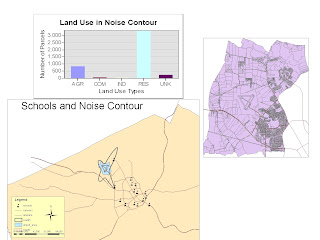Geographic Information Systems is amazingly useful for not only spatial analysis, but also for demographic research, urban planning and a host of other sciences and studies. GIS gives researchers the ability to view geographic information visually, highlighting the attributes they wish to know more about and query information from the stored data. This opens the door to easier data queries, quicker research, and more accurate analysis.
As a result, GIS contributes to furthering many fields that rely upon geographic data and cartographic information. The more GIS advances, the more these fields that rely upon GIS advance themselves -- because GIS helps them access the necessary tools and resources that drive their own studies. Thus, as a multi-field tool, GIS is bound to continue to develop as quickly as it has been, because the demand for quick information gathering software is so high.
Although GIS is an amazing tool for many fields of study, it does have its limitations. Researchers cannot rely upon its models as complete truth. They are, after all, only models and therefore only provide representations of the data they are equipped with. Researchers must be careful not to rely upon GIS too much, and must continue to fact check their models and perfect them as new data is inputted. In addition, GIS is limited by the data it builds its models upon. Therefore, new advances must be made in data collection technology to improve accuracy and decrease the labor time and effort that is currently necessary to build accurate data models.
Regardless, GIS is changing the world. It gives us the ability to look at our world from different angles and perspectives, cut layers out of it, highlight aspects and most importantly -- ask questions about the globe and its inhabitants. The ability to access cartographic and demographic information is priceless to countless academic and productive fields that drive our global processes. The faster GIS grows, the faster we can work, build and deconstruct this globe we call home.

No comments:
Post a Comment